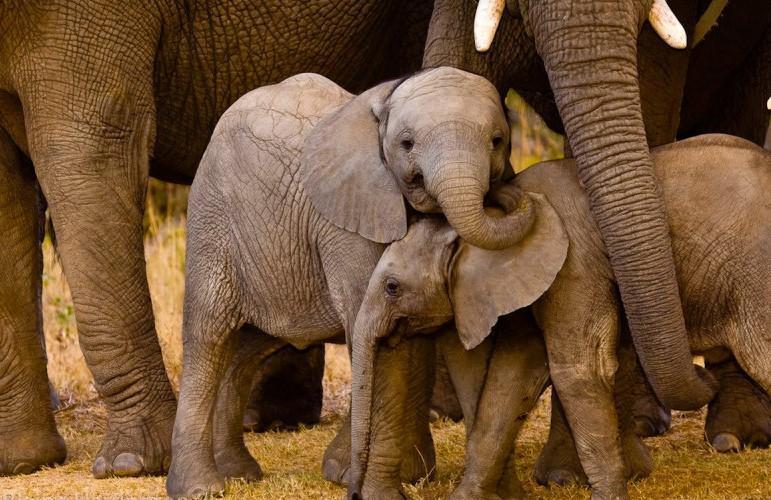
Orphaned elephants manage to overcome the loss of their mother by living in a herd, highlighting the importance of a social life for the species, according to a study.
Scientists investigated the consequences of a mother elephant’s death on her child by examining the level of stress hormones in the excrement of 37 young elephants in Kenya between 2015 and 2016.
Among the young elephants, 25 had lost their mother between one and 19 years before from poaching or drought.
Of the 25 orphans, 20 stayed within the same family unit after the mother’s death, while five joined an unrelated group.
The researchers found that stress hormones were at similar levels in the long term among orphans and the other elephants, even though the former were expected to show more stress symptoms in the absence of maternal care.
Any stress among the orphans did not last long, showing their “resilience” and the effect of social support from the other elephants, said Jenna Parker, the main author of the study published this week in the journal Communications Biology.
The importance of family links was obvious when observing elephant herds, Parker told AFP.
The young rarely stray more than 10 meters away from their mother and “incredible” reunions involving the entire group were seen after a few hours of separation, said the researcher at Colorado State University in the United States.
When poachers or hunters kill an elephant, that social cohesion disintegrates and threatens the group’s wellbeing, particularly the young ones left orphaned, she said.
Scientists also found lower stress levels among young elephants growing up in groups with more animals of a similar age, suggesting that “playmates” are essential for them.